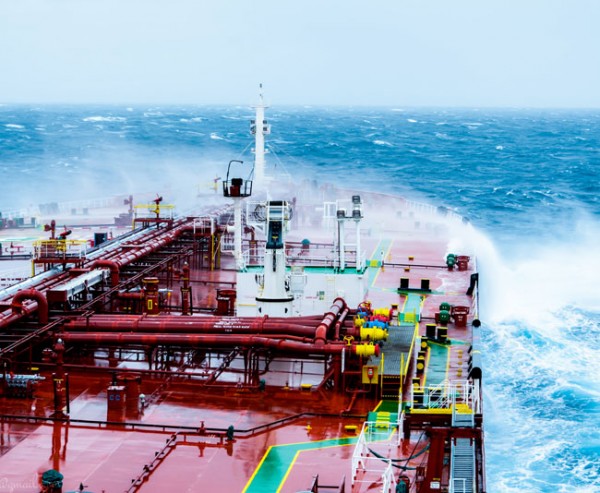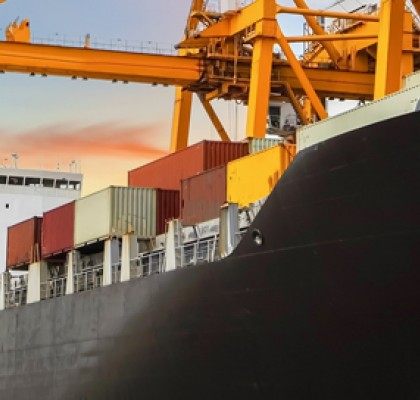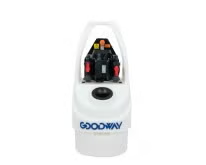Calcium Fouling in Seawater Cooling Systems

Seawater's ubiquity as a cooling medium on a global scale derives from its uniquely consistent narrow temperature range, which provides more stable heat-transfer efficiencies. The cooling process involves a single pass, where seawater absorbs the process heat and releases it into the ocean.
The use of seawater as a cooling medium offers several advantages, including its naturally low temperatures, efficient cooling capabilities, and simple system operation and maintenance.
However, dissolved solids within seawater can lead to the accumulation of calcium deposits in the cooling systems of ships and offshore platforms. Left untreated, this can cause increased fouling and corrosion in systems.
The percentage of calcium carbonate in a body of water varies depending on surface temperature, surface salinity, depth, distance from shore, and the calcium carbonate content of the underlying sediments. Most of the calcium carbonate found in marine deposits is in the crystalline form known as calcite.
Calcium carbonate accumulations present problems in direct seawater cooling systems, particularly in water-cooled engine jackets, heat exchangers and other critical equipment. In ship wastewater piping, hard water deposits can minimize flow, block off lines and scale up tanks, and cause adverse effects on pump seals and valves.
Boilers, steam turbines, and ballast systems are also vulnerable to scale build-up of and subsequent problems of overheating, shut down, or blockages.
You don't have to wait for unplanned shutdowns or failures to get rid of hard water deposits. By charting your equipment performance with proactive daily logbooks, operational set points will identify performance loss early on. It is important to identify scaling at the early onset before the equipment goes out of operational specification. Detecting scale accumulations early avoids cooling channels from becoming completely plugged which will require a more elaborate cleaning procedure.
Having a robust preventive maintenance program to prevent surface fouling is vital to efficient operation of water operated equipment as well as extending the equipment’s useful life. Chemical descaler’s are a fast way to achieve these goals as the downtime of the equipment is minimized and performed without disassembly. Specialty chemicals such as chemical descaler’s are circulated through the cooling passages, penetrate the deposits, and dissolve them into a liquid suspension. Chemical descaler are fast, most cleanings are accommodated in 4-6 hours. It is equally important to have the correct GPM flowrate on your pump system as it is to have the correct descaling solution and cleaning procedure. Goodway makes a large range of pump systems that will meet your specific needs.
Limescale and calcium deposits in these equipment systems can be effectively remedied using our ScaleBreak descaling solutions. Our descaler’s quickly dissolve calcium, lime, rust, and other types of crustations, from passages thus re-establishing efficiencies and proper heat transfer. Goodway’s ScaleBreak line of biodegradable products is safe for use on various metal alloys and other materials including: steel, stainless steel, iron, titanium, brass, copper, plastic, and rubber. When used as directed, they help to improve operating efficiency and extend equipment life in maritime applications.
Applications found in Workboat’s and cruise ship’s:
- Boilers
- Box coolers
- Evaporators
- Bow Thrusters
- Central Coolers
- Air Compressors
- Seawater pumps
- Chillers/condensers
- LNG Ship Vaporizers
- Inboard/outboard motors
- Plate type Heat Exchangers
- Seachests & filters/strainers
- Shell & Tube Heat Exchangers
- Direct seawater cooling systems
- Wastewater piping (grey & black)
Goodway Technologies offers free descaling consulting. It is our goal to make sure you utilize the correct descaling solution and cleaning methodologies so you can achieve a successful result. Whether you’re cleaning a boiler, chiller, heat exchanger or any other seawater operated piece of equipment, we have the experience to help.
You can learn more about Goodway Industrial Descaling Systems and Solutions here. Do you need help deciding which product to use? We’ve outlined which descaler may best meet your needs here. Unsure how much descaler to use? No worries, you can use our https://www.goodway.com/resources/calculators descaling calculator to estimate descaler amounts and circulation times. But the resources don’t stop, we also have application specific procedures to walk you through your cleaning step by step. If you are still unsure and have questions, we offer free descaling consultation with an expert that has been involved with chemical cleanings for over 25 years. Contact Goodway Technologies today and see how our solutions can support your preventive maintenance program.


